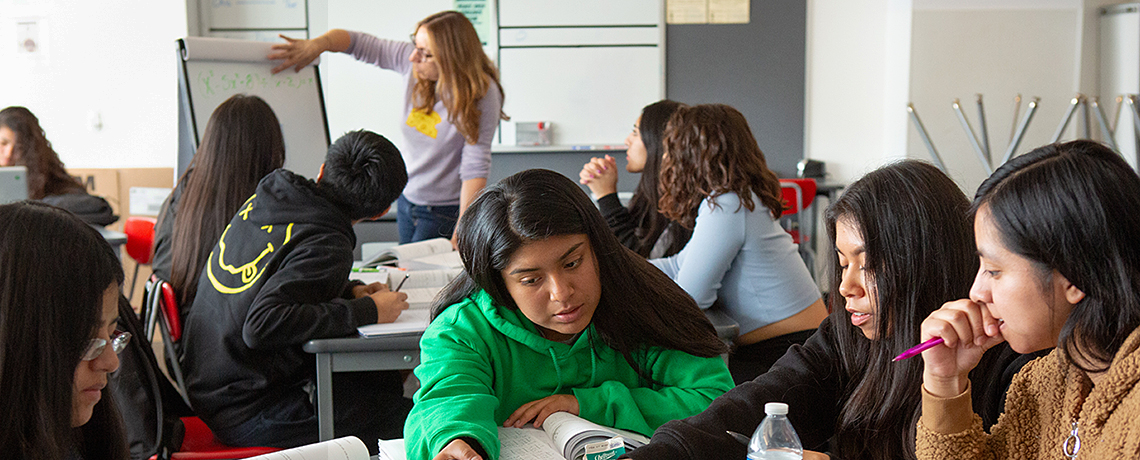Engaging Schools is a nonprofit organization that collaborates with educators to create equity-centered learning communities.
We offer professional learning and resources with practical strategies that integrate and embed academic, social, and emotional learning and development in daily classroom practice and schoolwide programs.
Our team brings decades of collective experience supporting districts and schools to increase the academic engagement of each and every student, foster safe and welcoming climates and cultures, and implement restorative and accountable discipline and behavior supports.
Photo by Allison Shelley for EDUimages.
Did You Know?
A Stanford University study found that an intervention that helped middle school teachers to take an "empathic mindset" to student discipline reduced suspensions by half over the course of the school year.
Being suspended even once in 9th grade is associated with a twofold increase in the likelihood of dropping out.
Millions of students are being removed from their classrooms each year, mostly in middle and high schools, and overwhelmingly for minor misconduct. When suspended, these students are at a significantly higher risk of falling behind academically, dropping out of school, and coming into contact with the juvenile justice system.
Research shows that among students from grades 5 - 12, positive emotions such as hope, wellbeing, and engagement account for 31 percent of the variance in students' academic success.
Students who strongly agree that they have at least one teacher who makes them “feel excited about the future” and that their school is “committed to building the strengths of each student” are 30 times more likely to be engaged in their classrooms.
A disproportionately large percentage of disciplined students are youth of color, students with disabilities, and youth who identify as lesbian, gay, bisexual, or transgender.
Promoting successful school completion requires a shift in focus from [demographic] predictors of non-completion, such as race and socioeconomic status, to student engagement at school and with learning over time. Students who are engaged — academically, cognitively, psychologically, and behaviorally — are more likely to complete school.
Asked to rate various factors’ effect on achievement, teachers and administrators rated student engagement and motivation, on average, 3.9 on a 4-point scale. And 87 percent of respondents considered student engagement and motivation to be “very important.”
A meta-analysis of 213 rigorous studies demonstrated that students receiving quality social and emotional learning instruction had better academic performance, improved attitudes and behavior, fewer negative behaviors, and reduced emotional distress.
Safe, caring, participatory, and responsive school climates tend to foster a greater attachment to school and provide the optimal foundation for social, emotional, and academic learning for middle and high school students.
From Our Blog
Stay the course on restorative, accountable, and equitable discipline
The recent wave of school shootings is among the reasons cited for the movement underway in the country to support or expand the use of punishment and exclusion to address behavior concerns. Bills have been introduced in many states that allow educators to suspend more students for reasons like disruptive behavior, making it easier for…
More

